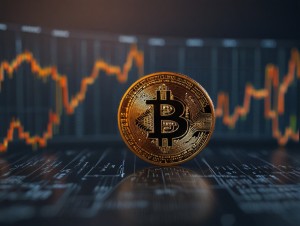Shifting away from the whirlwind of Bitcoin and its energy-guzzling operations, Iceland is steering its focus towards ensuring its dinner tables don’t feel the harsh sting of global disruptions. With the world showing its rough edges, Iceland’s top brass has decided it’s time to dig their heels into the soil, quite literally, and give farming a much-needed hug. This move isn’t just about getting dirty in the fields; it’s a bold statement against the reliance on digital currency mining that’s been sucking the country’s power dry.
The recent uproar from European farmers and the constant hiccup in trade routes have been a wake-up call. According to Iceland’s Prime Minister, Katrín Jakobsdóttir, in conversations with financial bigwigs, it’s been clear that betting the farm on imports isn’t a safe gamble anymore. Iceland, known for its icy landscapes rather than lush farmlands, is tackling this head-on. The country’s leaders are not just thinking about the next harvest; they’re planning for a future where they’re not at the mercy of international supply chains.
A Shift Towards Self-Sufficiency
Jakobsdóttir’s blend of environmental and economic strategy is a clear signal that Iceland is changing lanes. The country’s abundant renewable energy resources have been a beacon for Bitcoin miners from around the globe. This influx has transformed Iceland into a sanctuary for data centers, all hungry for a piece of the green energy pie. However, this digital gold rush is starting to lose its luster.
The prime minister’s latest maneuver is not just about curbing the appetite of these data behemoths. It’s a broader vision to repurpose the nation’s renewable resources towards more pressing needs, like heating homes and supporting industries that touch every Icelander’s life directly. With a population just shy of 400,000, the focus is shifting to ensure that their energy needs aren’t sidelined for cryptocurrency’s sake.
Jakobsdóttir’s stance is clear: while Bitcoin might be making waves globally, it’s not going to ride the renewable energy wave in Iceland any longer. The proposal to boost wind energy is a nod towards industries that align with the country’s goal of carbon neutrality, leaving Bitcoin and its ilk in the rearview mirror.
The allure of cheap hydroelectric power drew a slew of data centers to Iceland’s shores. But this digital attraction has been a double-edged sword. Research by Luxor indicates that these crypto operations are hogging more electricity than all Icelandic households combined. This imbalance reached a tipping point over the winter, pushing fish-processing plants to resort to oil and diesel – a solution that’s as unsustainable as it is undesirable.
Rebalancing Iceland’s Economic and Environmental Scales
The backdrop to these changes isn’t just local. Europe’s broader challenges with food security and balancing agricultural output with environmental goals are casting a long shadow. Countries like France and the Netherlands are in a tightrope walk, trying to keep their farming sectors alive while adhering to stringent climate objectives.
Iceland’s own foray into boosting farm output through a new funding system and trials in corn cultivation marks a significant pivot. With the majority of animal products locally sourced, the push towards growing more cereals and vegetables domestically is a step towards dietary independence. The emphasis on self-reliance is not just about pride; it’s a strategic move in an increasingly isolationist global landscape.
The economic script is also undergoing revisions, with Iceland’s central bank holding interest rates steady in a bold stance against inflation. Despite expectations of a cut, the decision underscores a commitment to stabilizing the economy amidst fluctuating global conditions. This financial discipline, coupled with efforts to support those impacted by natural disasters like volcanic eruptions, paints a picture of a nation that’s not just reacting to immediate threats but planning for a resilient future.





